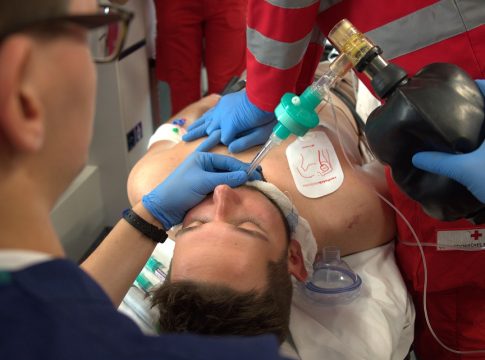Sometimes the wheels of justice only start turning after a significant event jolts the system. Arrests, often seen as isolated incidents, have historically led to sweeping legal reforms that change the landscape of justice and public policy. These events, while tragic or controversial, illuminate flaws in existing laws and normatively push society toward progress. In this article, we’ll explore eight arrests that you may not know sparked major legal reforms, illustrating how the journey from fear to change can reshape laws and ultimately affect your life.
1. The Arrest of Rosa Parks
In December 1955, when Rosa Parks was arrested for refusing to give up her seat on a bus in Montgomery, Alabama, it wasn’t just an act of defiance; it was a catalyst for the Civil Rights Movement. Parks’ arrest sparked widespread outrage that led to the Montgomery Bus Boycott. The boycott lasted over a year and resulted in the Supreme Court ruling that segregation on public buses was unconstitutional. Parks’ arrest didn’t just change bus laws; it ignited a movement, leading to greater civil rights legislation, including the Civil Rights Act of 1964.
2. The Case of Marissa Alexander
In 2010, Marissa Alexander was sentenced to 20 years in prison for firing a warning shot at her abusive husband during an altercation. Her case highlighted the severe consequences of Florida’s mandatory sentencing laws, especially concerning self-defense claims. Public outcry over the perceived injustice led to a re-examination of “Stand Your Ground” laws, culminating in Florida lawmakers passing the Marissa Alexander Act in 2017. This reform aimed to enhance protections for victims of domestic violence who use firearms in self-defense situations.
3. The Arrest of Eric Garner
Eric Garner’s chokehold death in 2014 at the hands of New York police officers led to national protests and discussions on the use of force in law enforcement. Garner’s last words, “I can’t breathe,” became a rallying cry within the Black Lives Matter movement. This tragedy prompted major reform in police practices, including New York City’s implementation of new training programs focused on de-escalation techniques. The incident became pivotal in the push for the national conversation around police accountability and reform.
4. The Arrest of Kalief Browder
At 16, Kalief Browder was arrested for allegedly stealing a backpack. He spent nearly three years in Rikers Island without a trial, suffering from abuse and severe mental health issues. After his release, Browder tragically took his own life. His case exposed the flaws in the bail system and the treatment of juveniles in the criminal justice system. His story led to a wave of legal reforms focused on bail reform and juvenile justice, emphasizing the need for fair treatment and due process.
5. The Arrest of Sandra Bland
In 2015, Sandra Bland was pulled over for a minor traffic violation that escalated dramatically and resulted in her death in police custody. Her tragic case sparked national outrage and a discussion surrounding systemic racism, particularly in law enforcement. Following her death, Texas passed legislation, known as the Sandra Bland Act, aimed at improving mental health training for law enforcement and reducing arrests for minor, non-violent offenses, showing how a single arrest can lead to institutional change.
6. The Arrest of Darnella Frazier
Darnella Frazier, the teenager who filmed George Floyd’s arrest and subsequent death, faced significant emotional and legal pressures as a result of her actions. While she wasn’t arrested, her recording played an essential role in exposing the extreme measures police could take against civilians. It has led many to advocate for the establishment of laws protecting civilians recording police activity and protections for whistleblowers. Various states have since enacted laws that help protect bystanders who capture misconduct by law enforcement.
7. The Case of Tamir Rice
Tamir Rice was a 12-year-old boy shot by police while playing with a toy gun in Cleveland, Ohio. His death led to widespread protests and criticisms about police response to children and people of color. Following his tragic death, Cleveland enacted reforms to its police department, leading to new training initiatives around dealing with children and the establishment of a community police commission. This reform was aimed at ensuring that officers are better equipped to handle such delicate situations in the future.
8. The Arrest of Aiyana Jones
The police shooting of 7-year-old Aiyana Jones during a botched raid in Detroit raised national awareness about the use of SWAT teams and no-knock warrants. The uproar over her death prompted discussions and subsequent reforms aimed at making police raids safer, more transparent, and accountable. Many states reevaluated their regulations surrounding the deployment of SWAT teams, focusing on scenarios that warrant their use, especially in actions involving minors.
Justice Begins with Awareness
These arrests remind us that every life has the potential to impact the laws that govern us. By shining a light on injustice, whether through protests, media coverage, or personal narratives, they create a platform for legal reforms that promote justice, equality, and safety for all. Remember, the path to reform often begins with our collective acknowledgment of issues brought to the forefront by such incidents. It’s vital that we continue to question, engage, and advocate for justice in every form.
What are your thoughts on these events? Have they inspired you in any way, or do you have experiences that align with these stories? Share your insights in the comments!

Covers viral stories, pop culture, and breaking celebrity news.
Bio: Jamie has a sharp eye for what’s buzzing online, tracking social media trends and entertainment headlines around the clock.

